Deutsche Oper Berlin
Don Carlo
Opera
Bismarckstraße 35, 10627 Berlin
Giuseppe Verdi
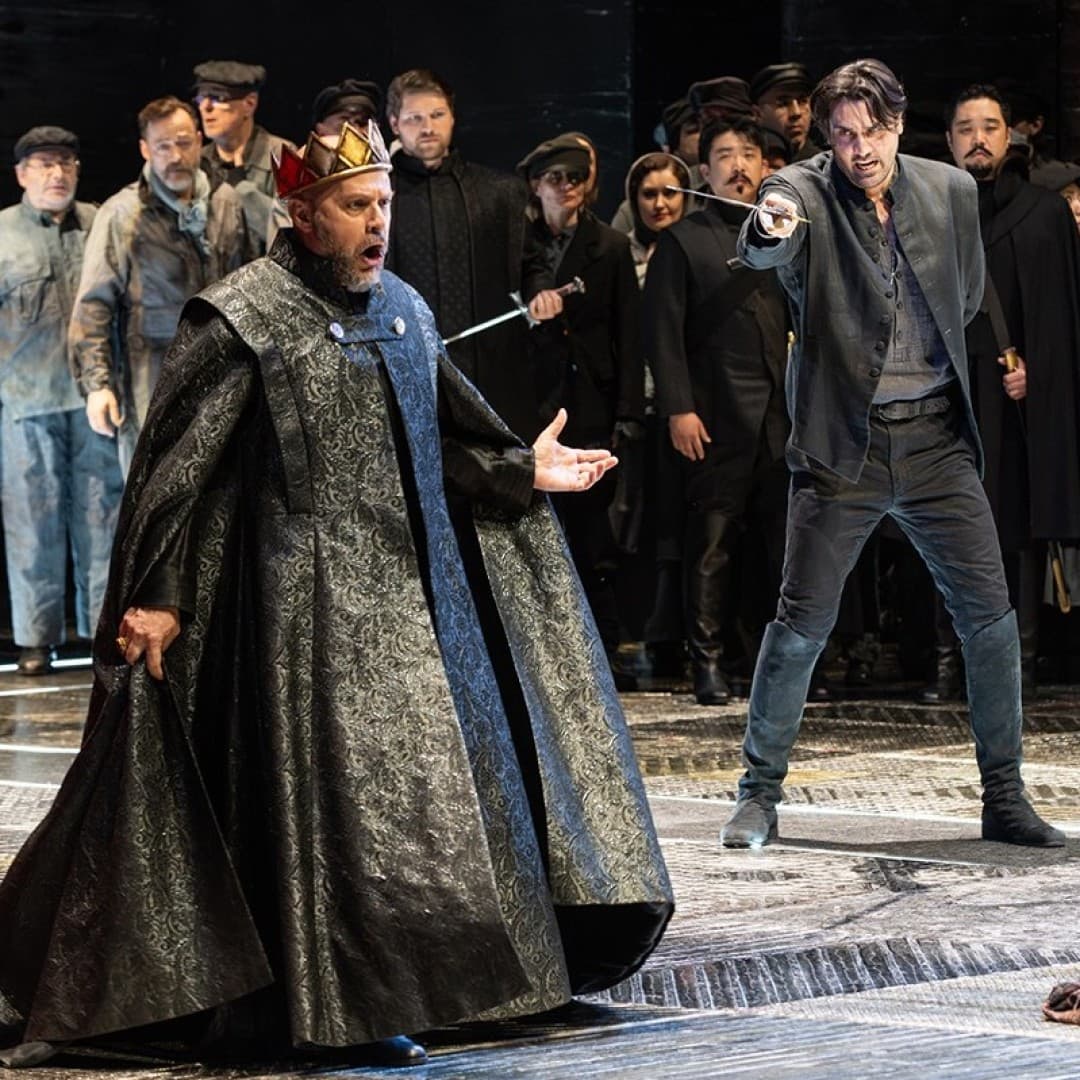
© Marcus Lieberenz
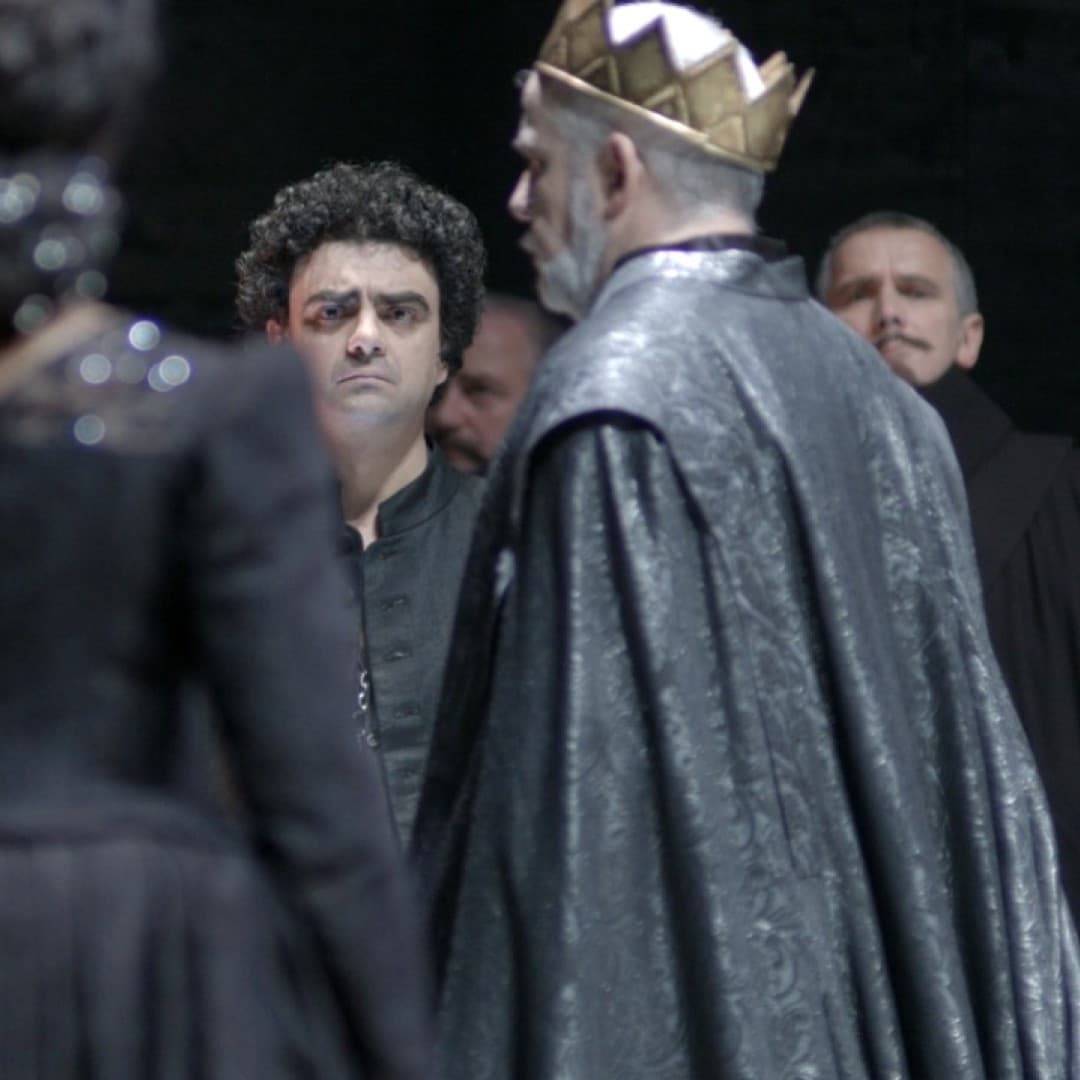
© Ruth Tromboukis
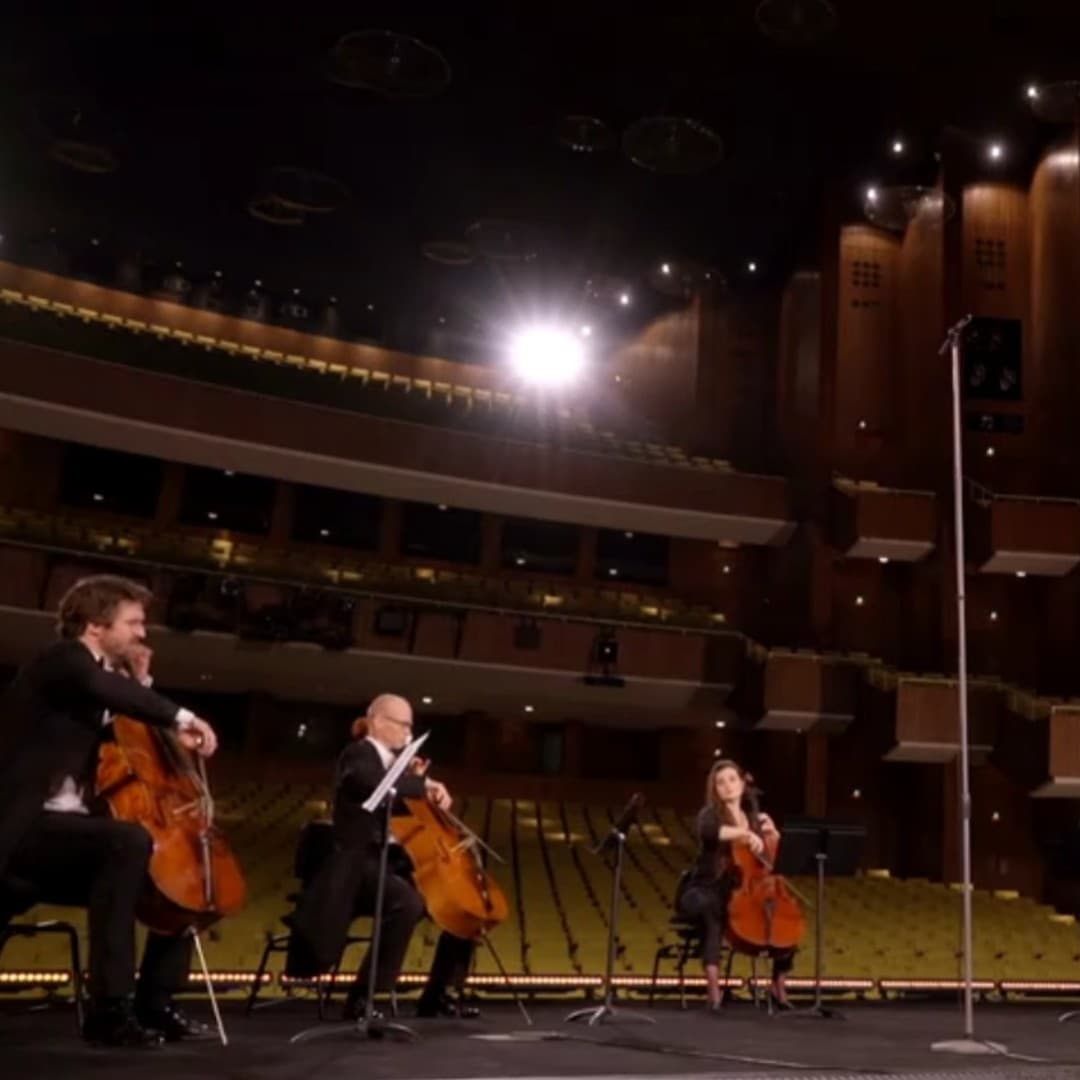
© Ruth Tromboukis
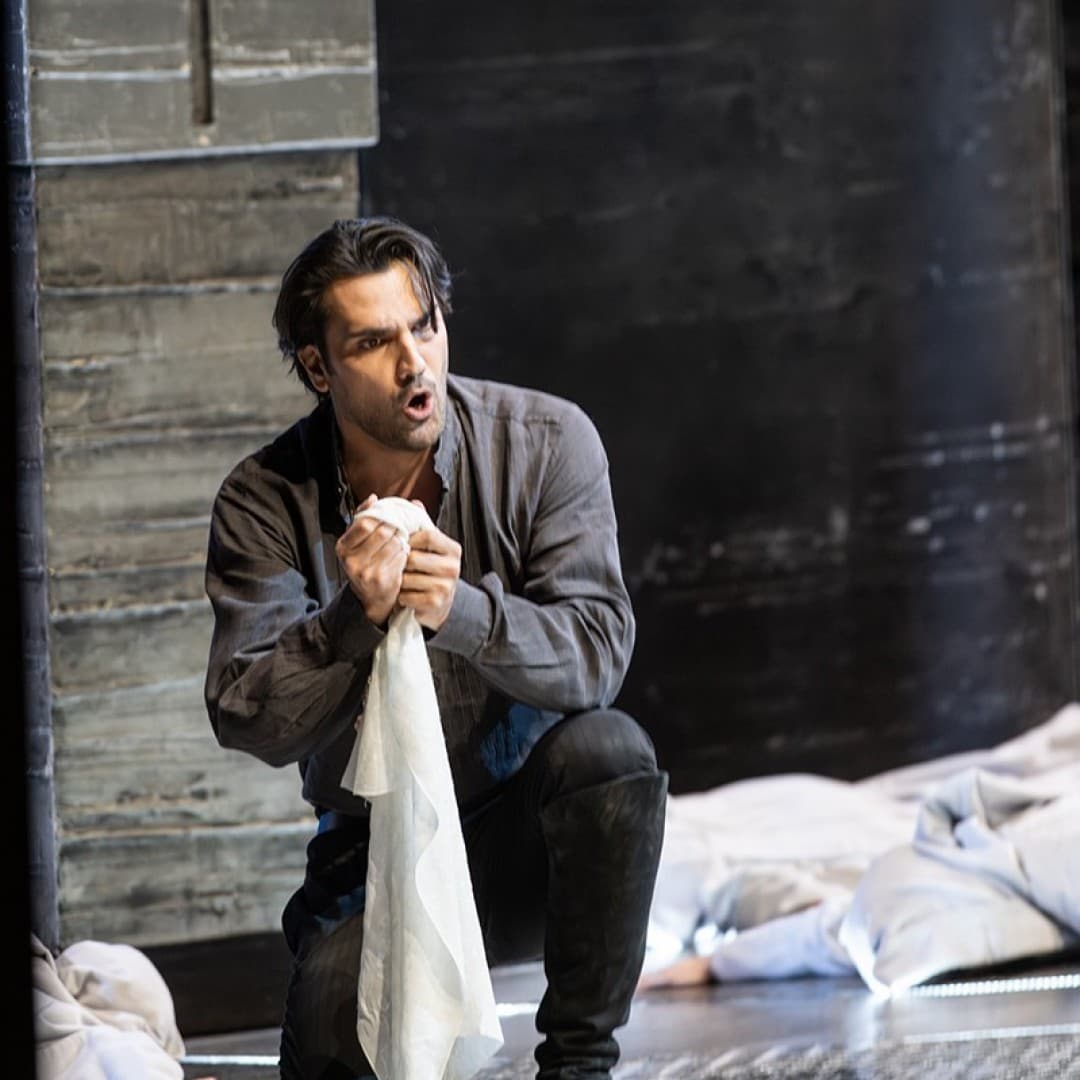
© Marcus Lieberenz
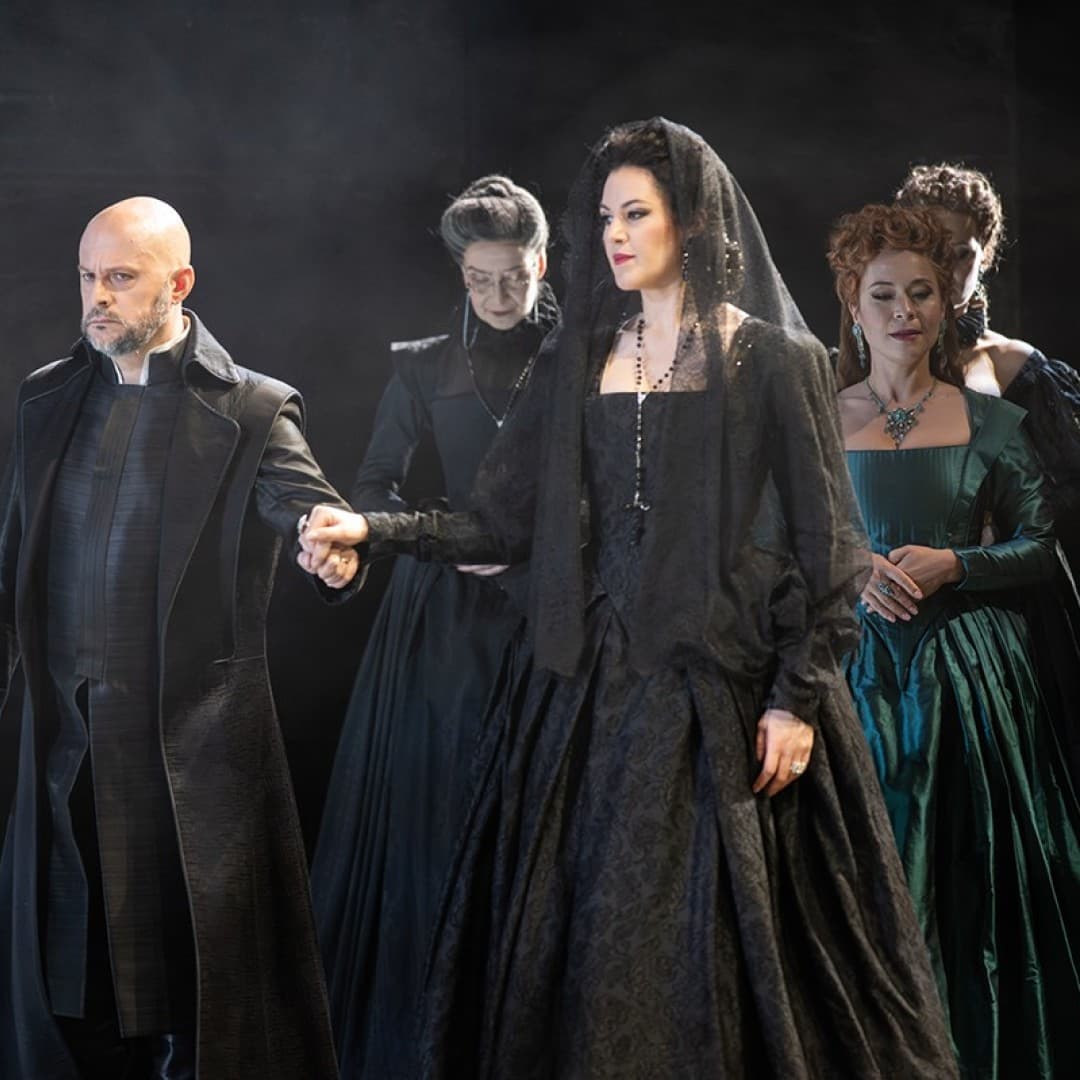
© Marcus Lieberenz
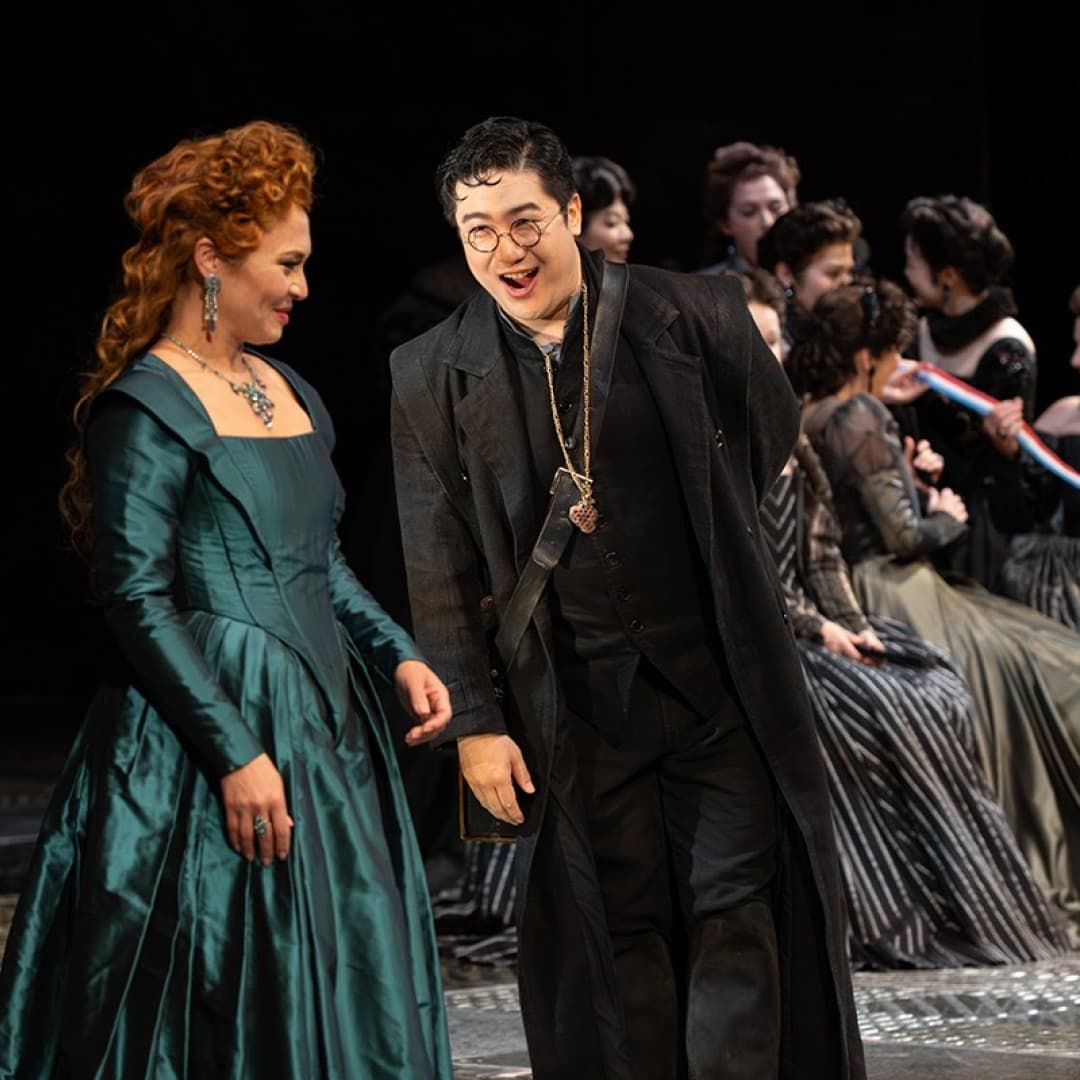
© Marcus Lieberenz
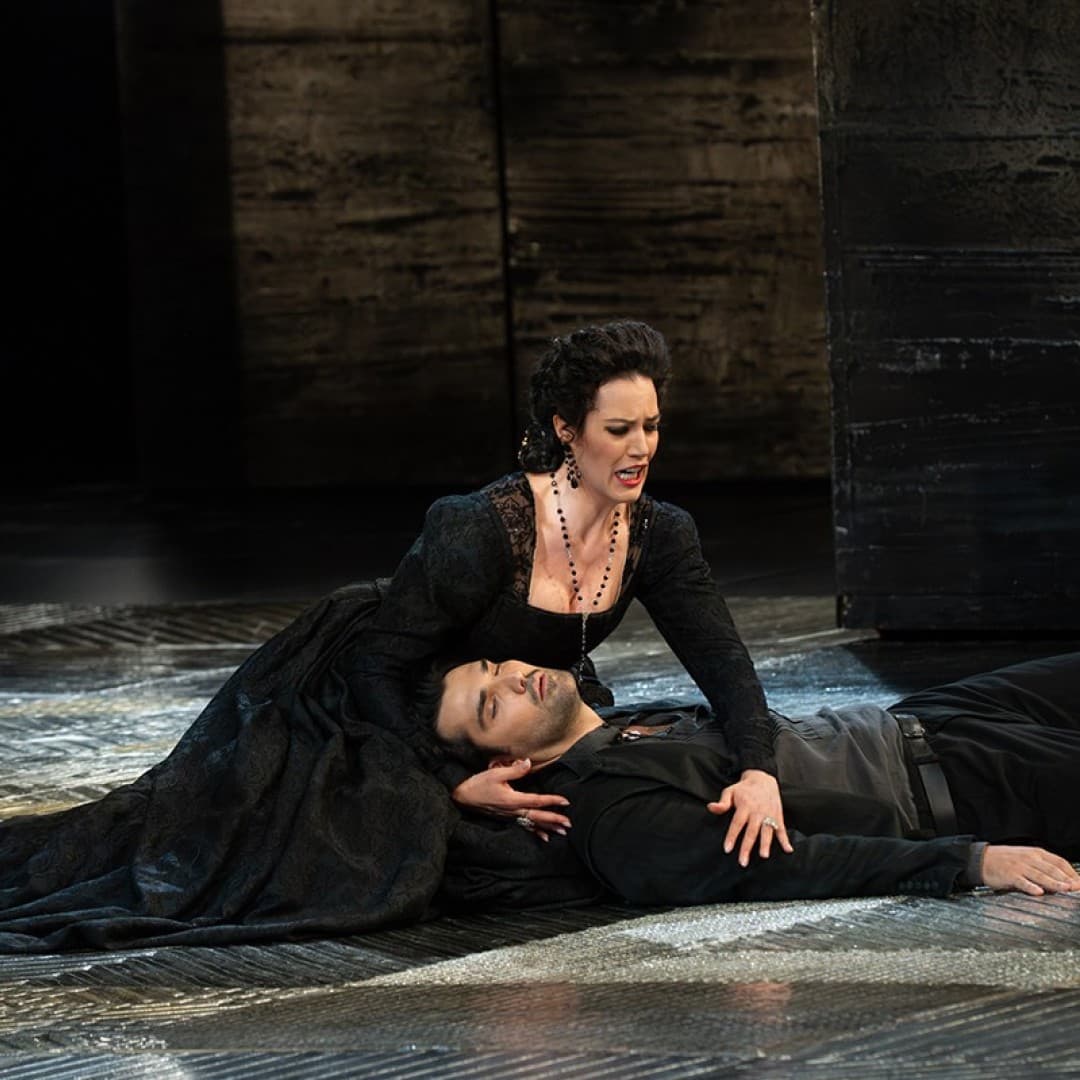
© Marcus Lieberenz
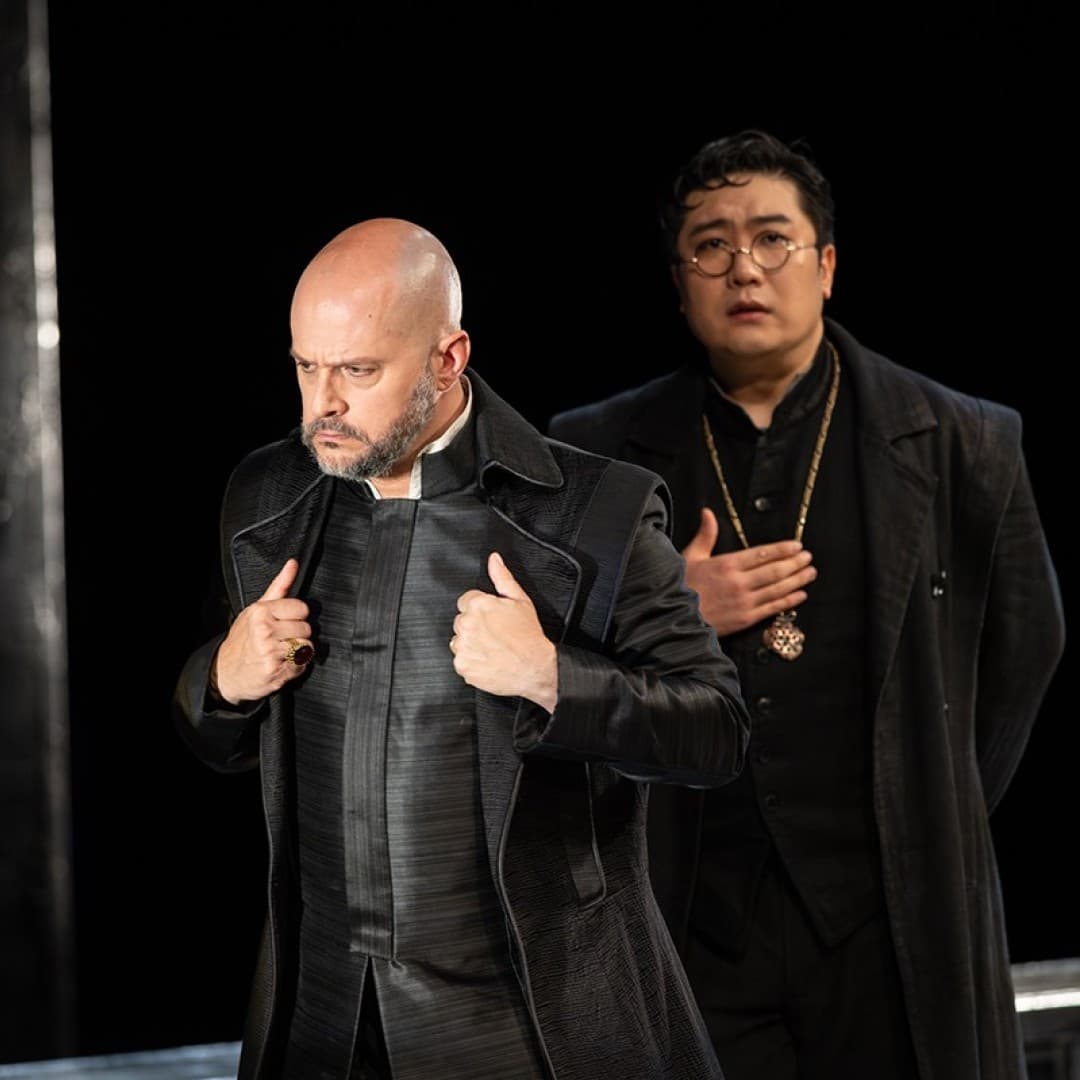
© Marcus Lieberenz
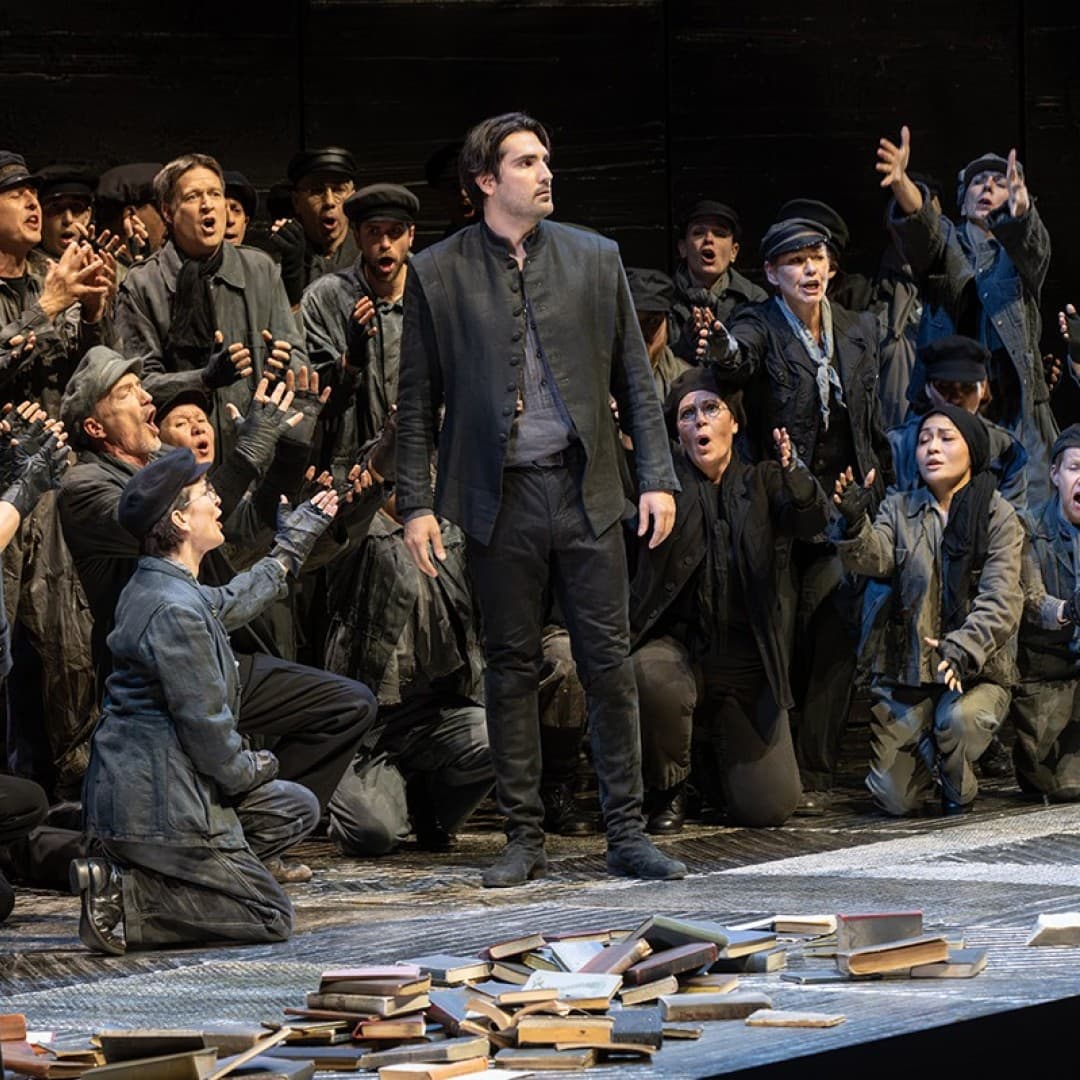
© Marcus Lieberenz
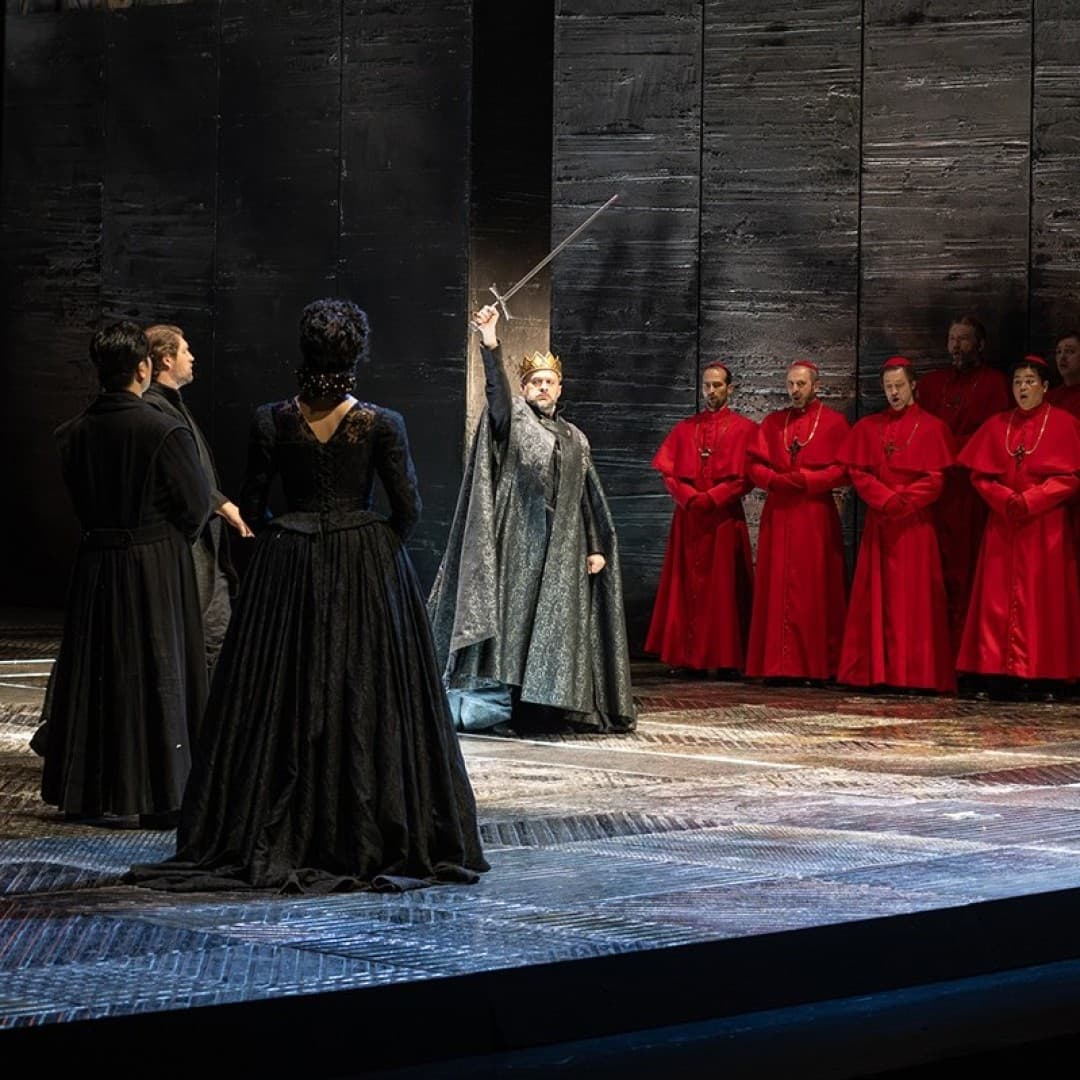
© Marcus Lieberenz
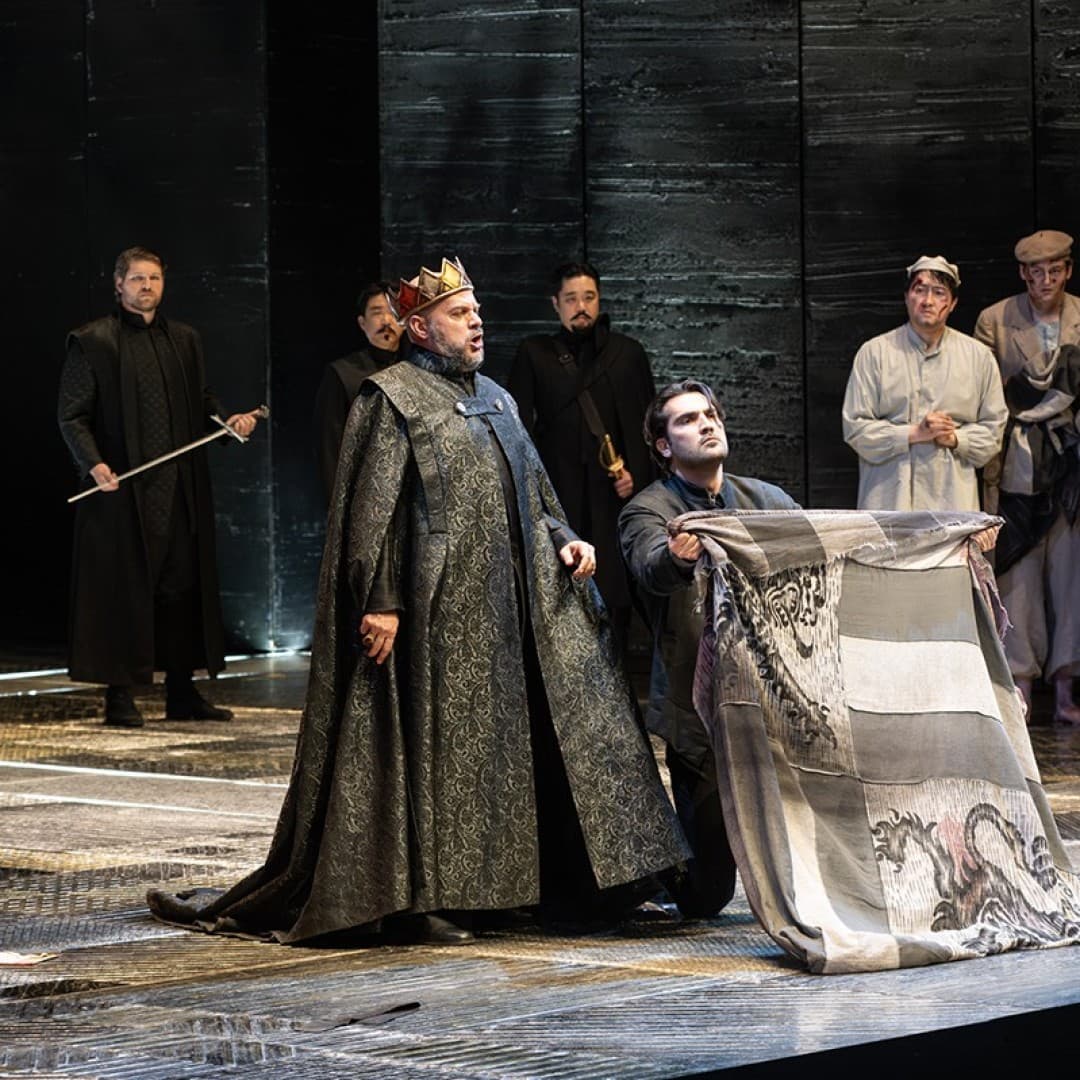
© Marcus Lieberenz
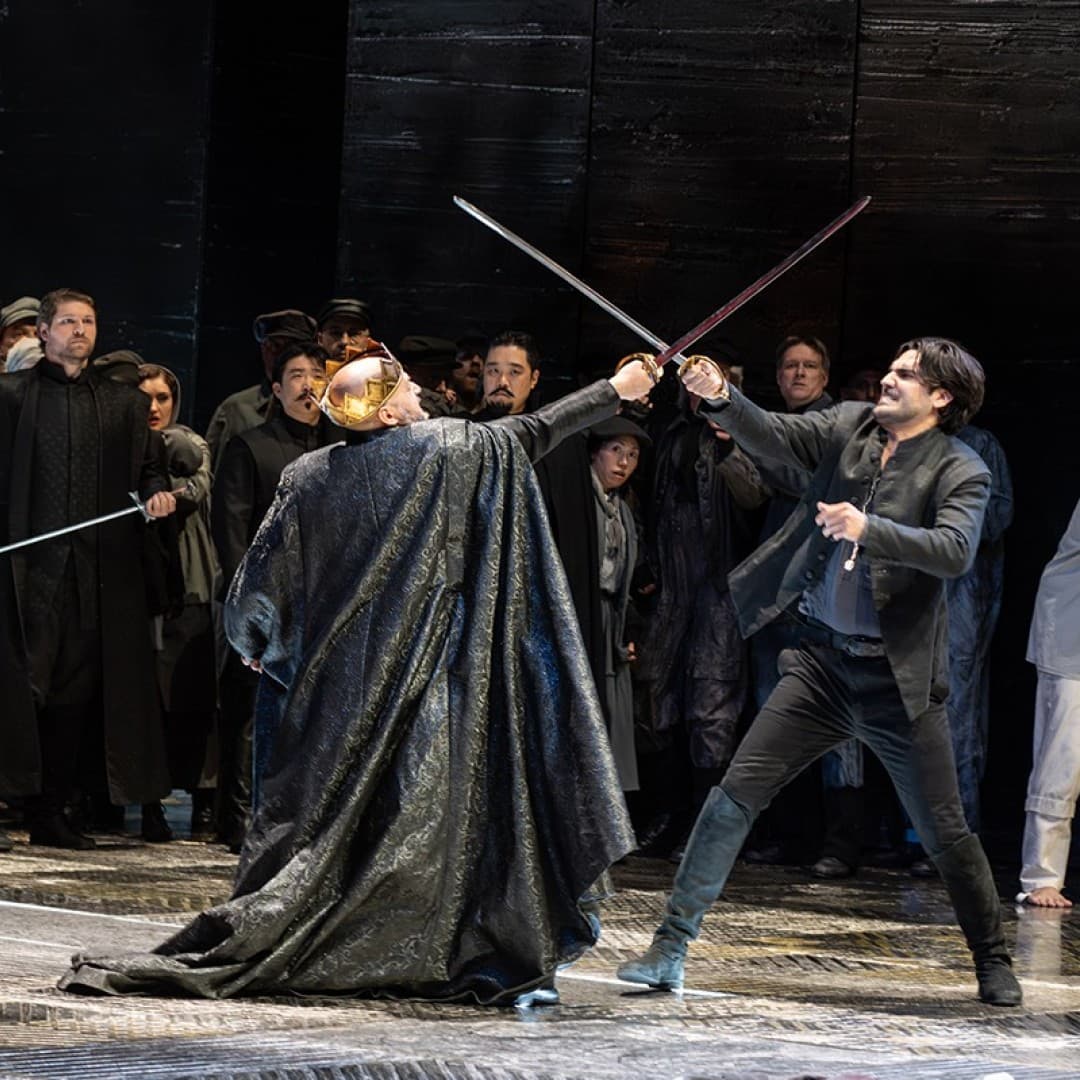
© Marcus Lieberenz
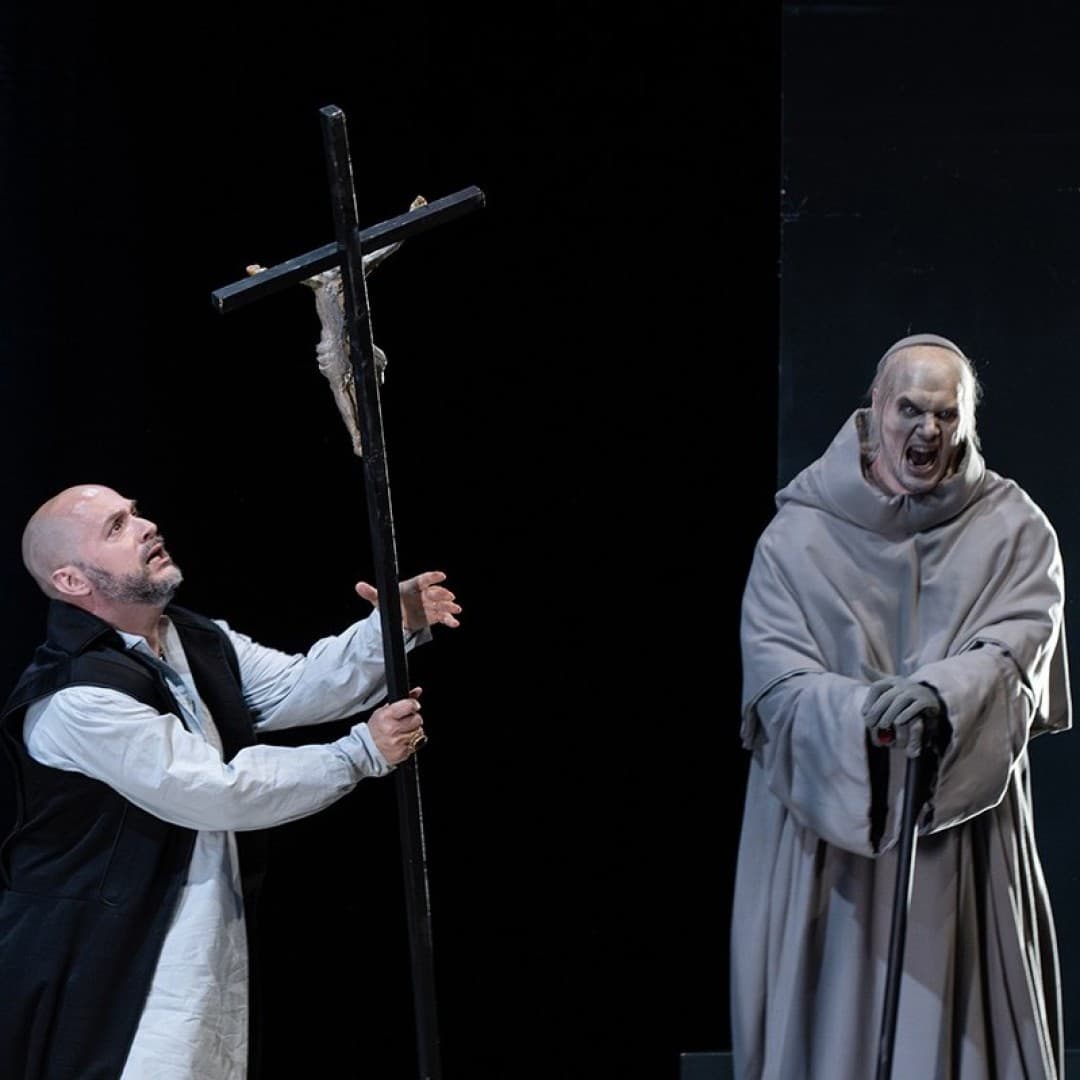
© Marcus Lieberenz
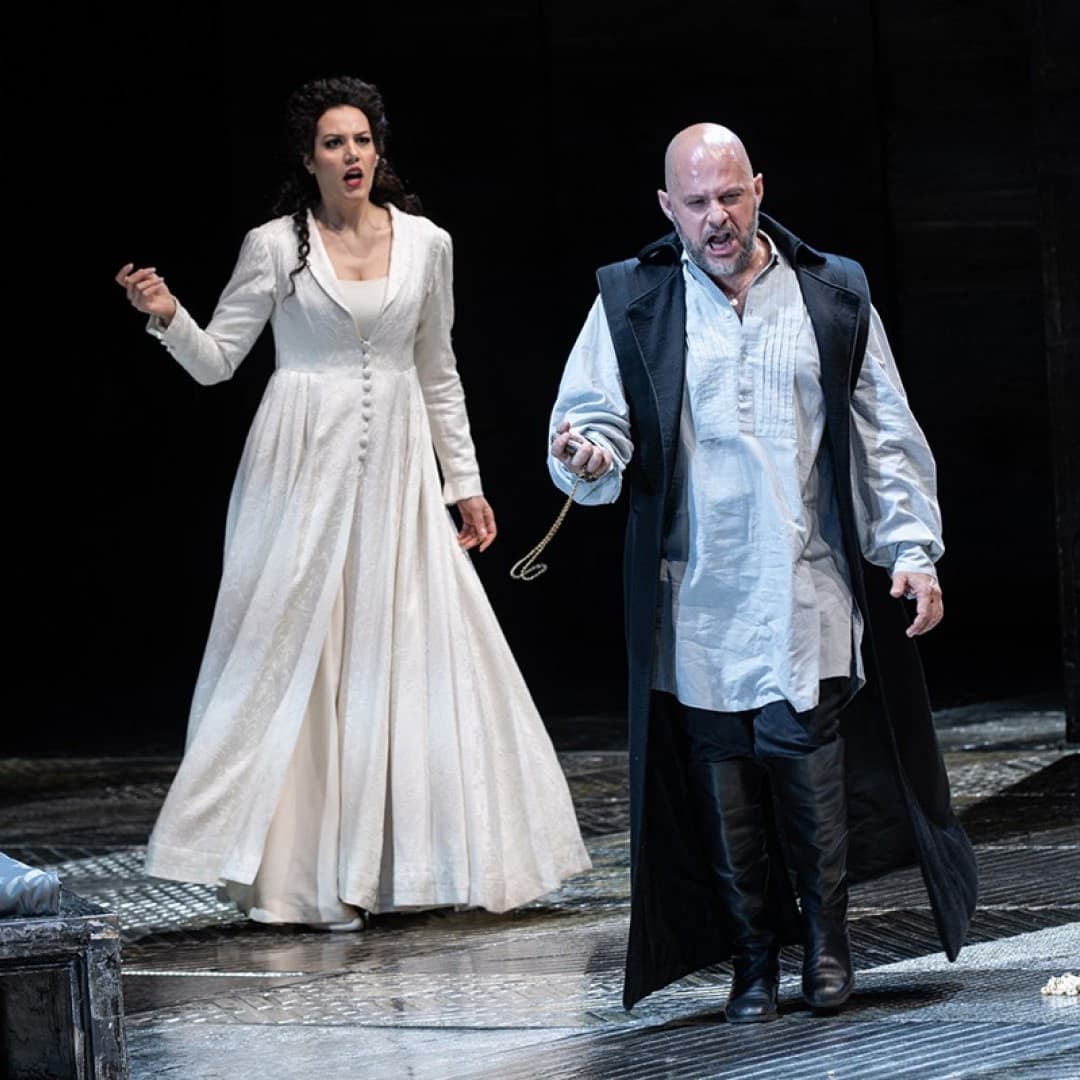
© Marcus Lieberenz
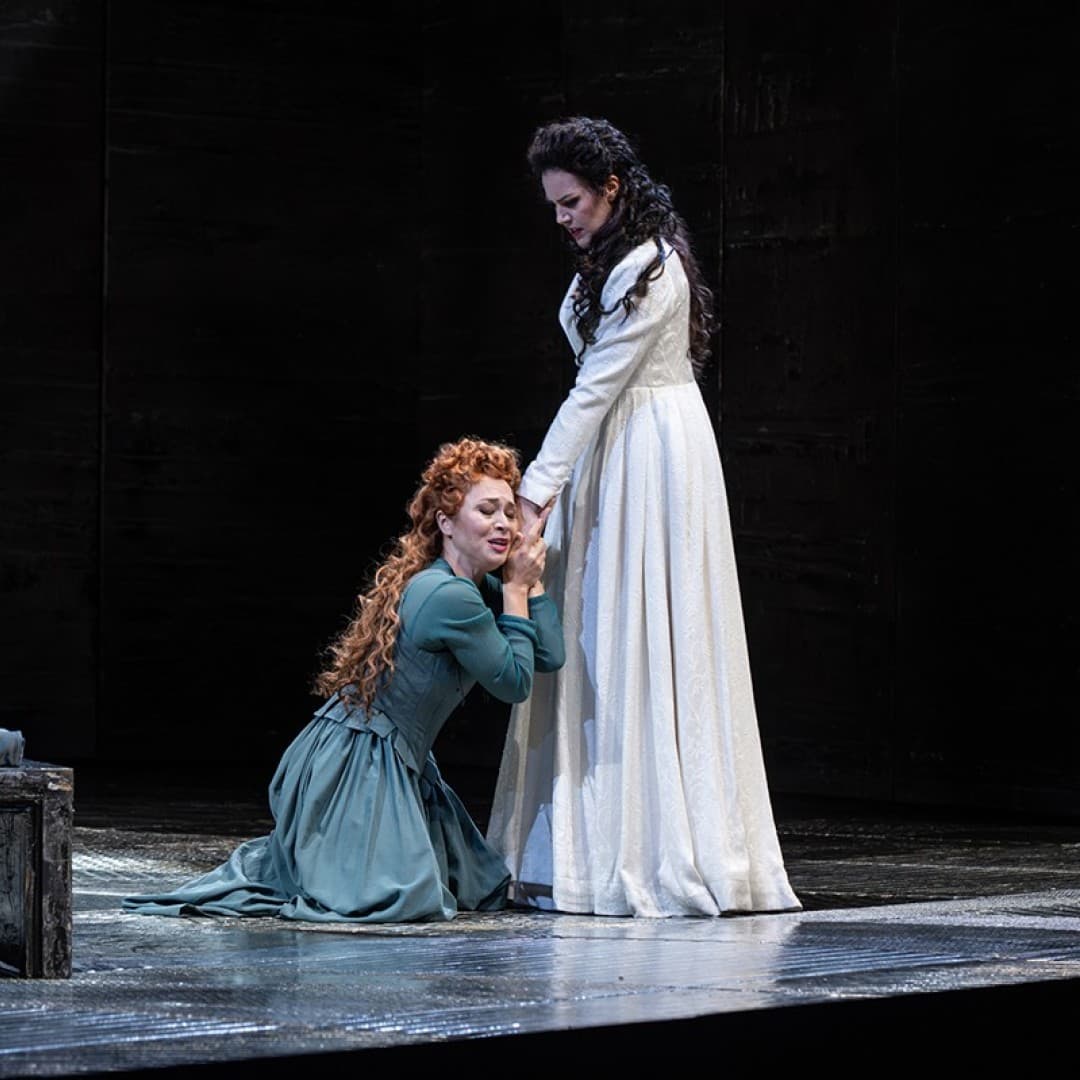
© Marcus Lieberenz
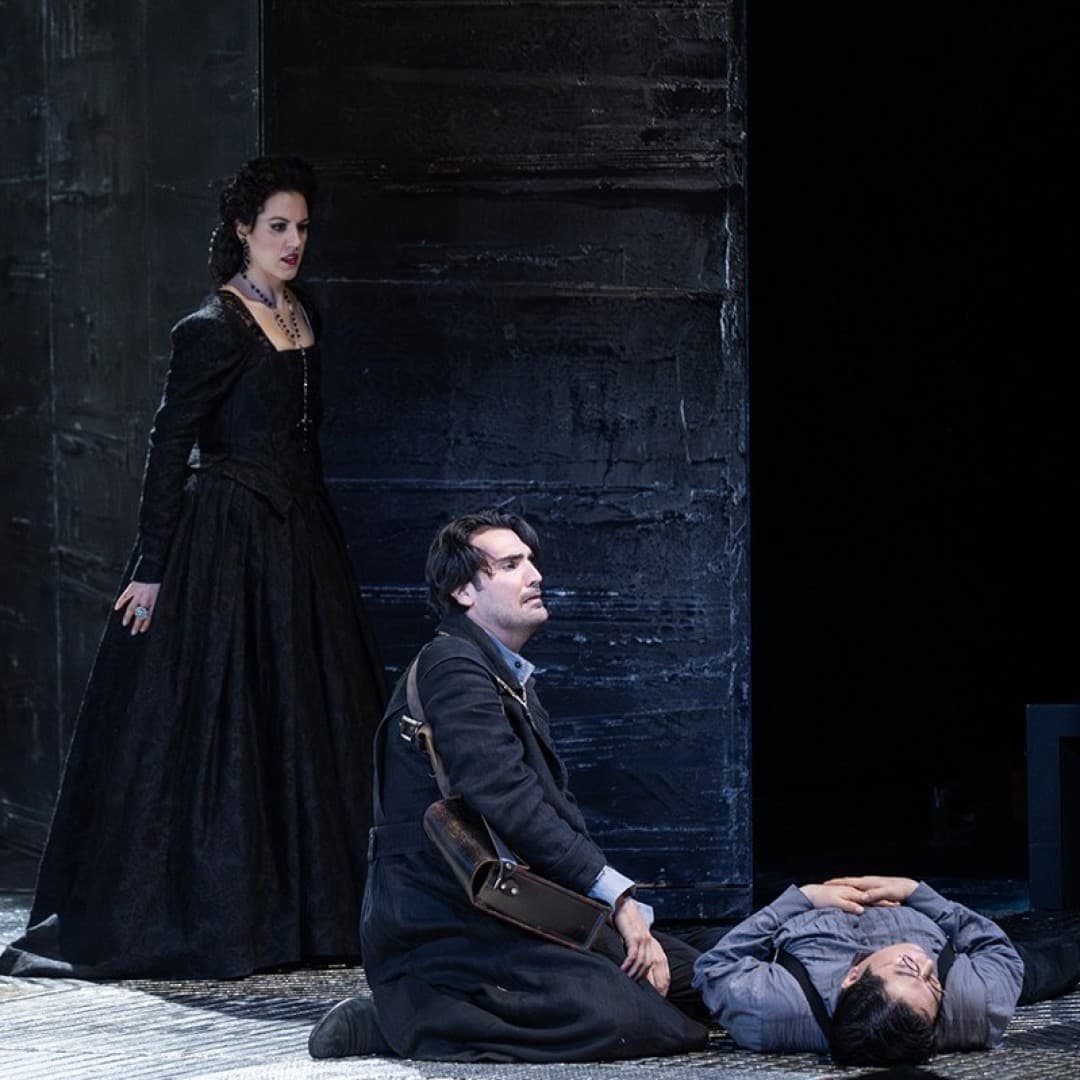
© Marcus Lieberenz
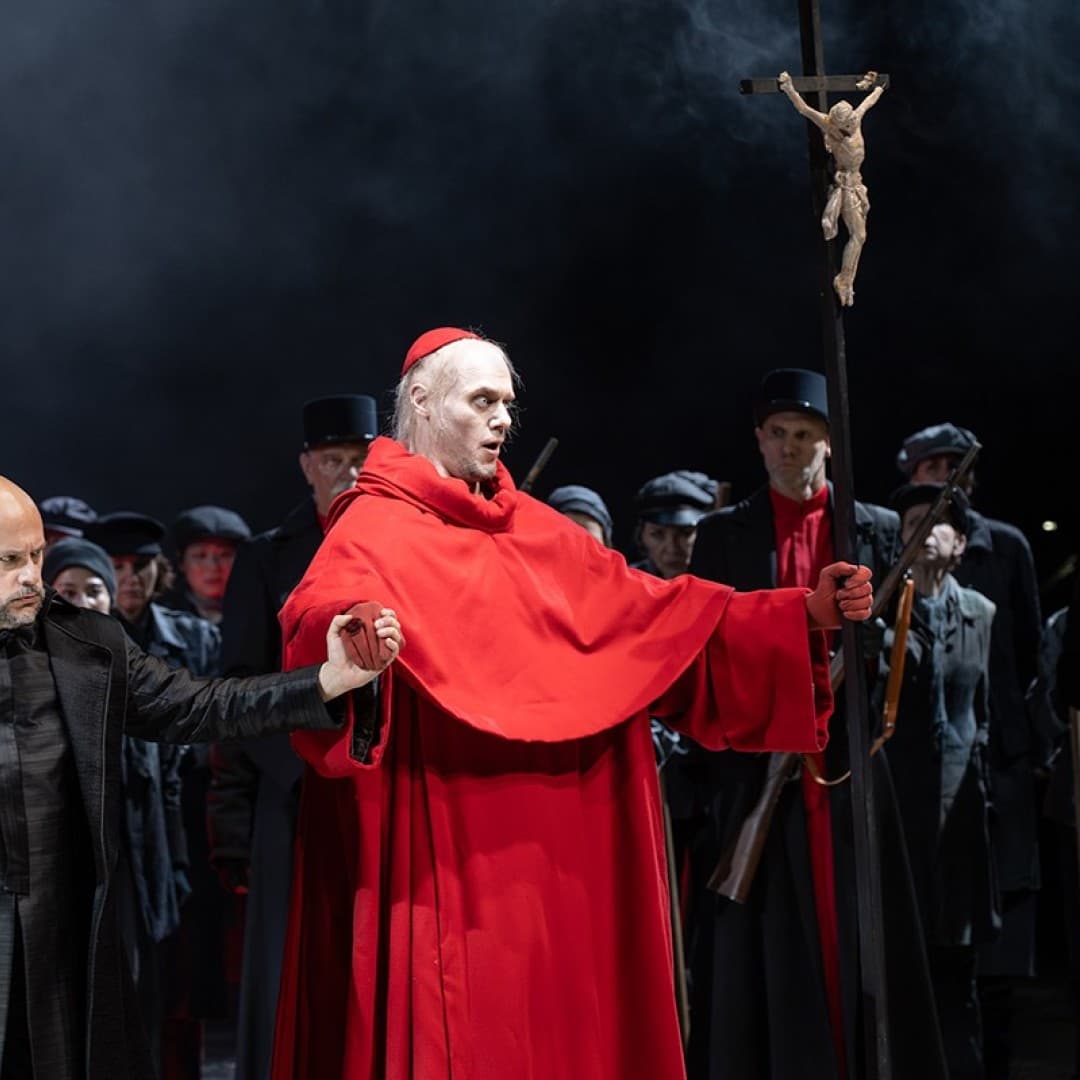
© Marcus Lieberenz
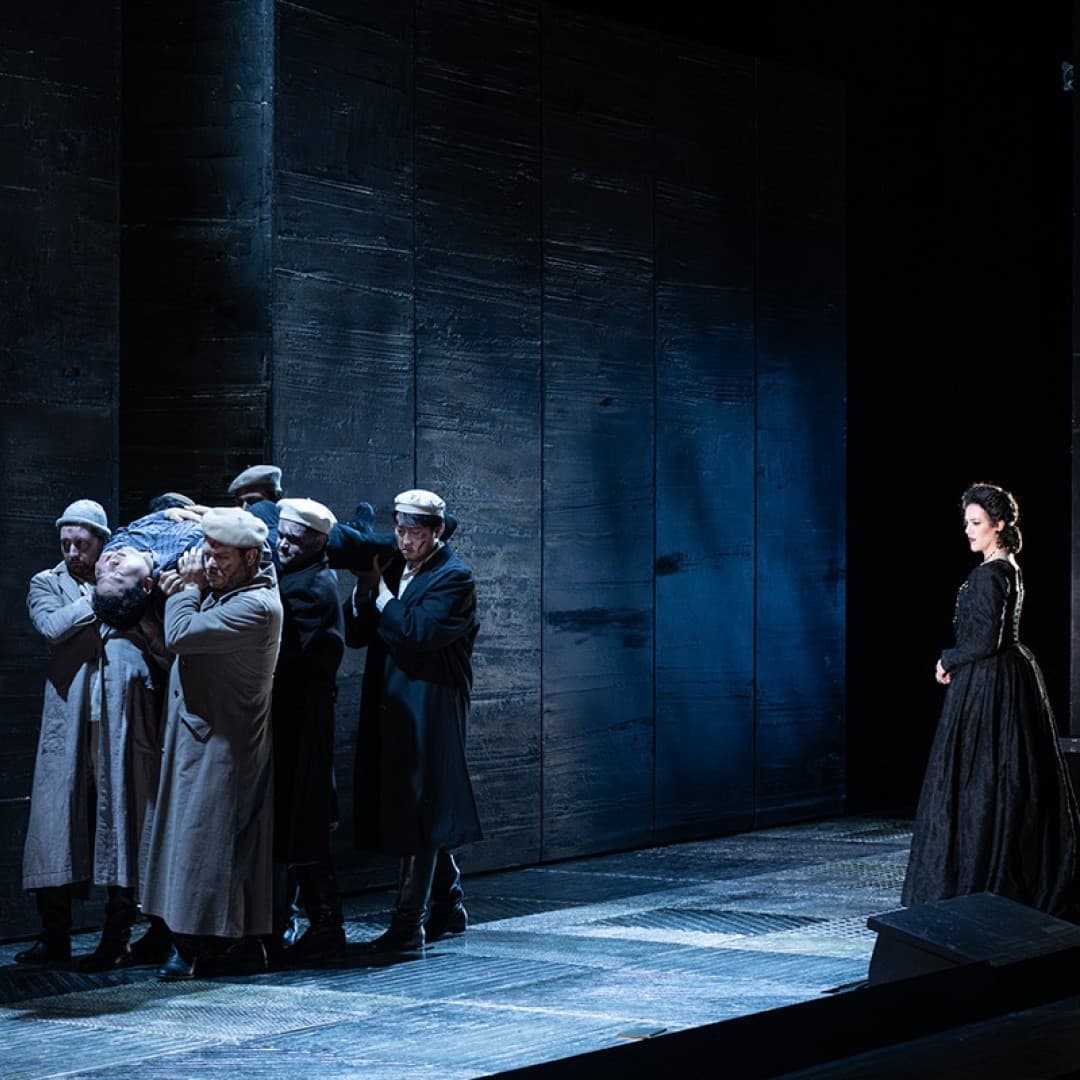
© Marcus Lieberenz
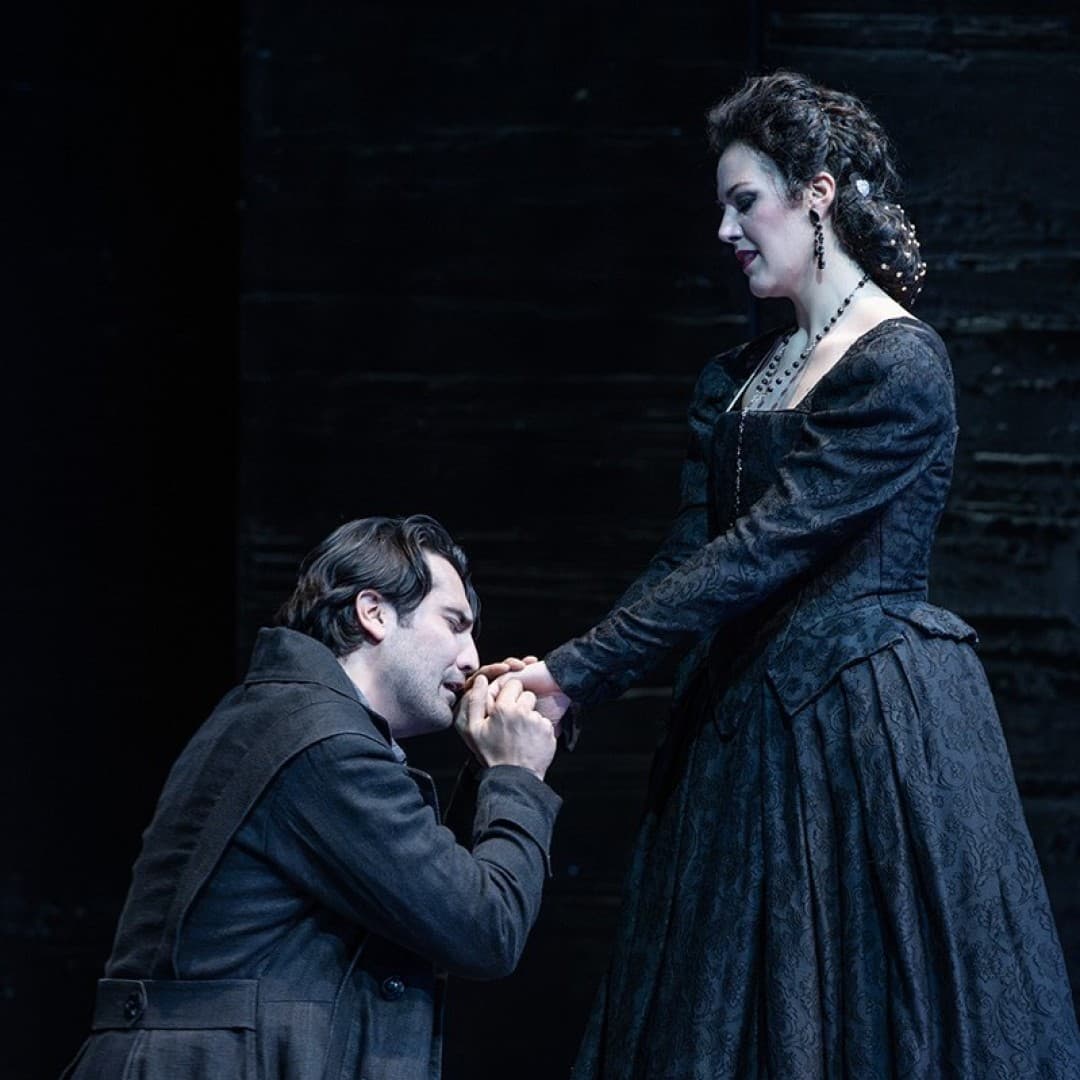
© Marcus Lieberenz
Description
One of Verdi's great political operas, it focuses entirely on the individual destinies of the characters, on their loves, passions, desires and disappointments. Marco Arturo Marelli's austere staging deepens these conflicts in its visually powerful set, reminiscent of the Escorial...
About the work
It is common knowledge that Giuseppe Verdi, by nature a critical man, not only found much to disapprove of in the trends of his day but also subjected his own work to a continuous process of editing and revision.
None of his operas did he alter, abridge, rearrange or rewrite more intensely than his grimmest work of all – Don Carlo -, whose web of political, religious and social constraints is most reminiscent of the inescapability of destiny associated with Greek drama.
Verdi began writing the opera in 1865, and twenty years were to pass before the premiere in Milan of the four-act version that we are most familiar with today. The composer not only wrestled with the two languages of the piece, each with its distinctive form of expression. He was also at pains to achieve the best possible result by repeatedly cutting, reducing and rearranging. The opera, extensive sections of which are faithful to Schiller’s play, went through no less than seven versions.
In none of the opera’s characters does the light of reason sparkle. Prisoners of their situations, prisoners of their own reins of control and of their own making, above all prisoners of a deadly, ever-looming spiritual power greater even than secular hegemony… Verdi captures the essential helplessness of human beings entangled in this network of terror: at best, death brings release.
About the production
Marco Arturo Marelli brings Verdi's epic opera classic to the stage in a visually stunning way. The struggle for freedom and independence under the rule of the absolutist King Philip II is emphasised as a central theme. The unshakeable power of the church, which is chiselled into the foundations of this society, is always present behind everything. Embodied in the Inquisition, it makes short work of anything that could pose a threat to it by attempting to shake up the existing conditions.
About the work
It is common knowledge that Giuseppe Verdi, by nature a critical man, not only found much to disapprove of in the trends of his day but also subjected his own work to a continuous process of editing and revision.
None of his operas did he alter, abridge, rearrange or rewrite more intensely than his grimmest work of all – Don Carlo -, whose web of political, religious and social constraints is most reminiscent of the inescapability of destiny associated with Greek drama.
Verdi began writing the opera in 1865, and twenty years were to pass before the premiere in Milan of the four-act version that we are most familiar with today. The composer not only wrestled with the two languages of the piece, each with its distinctive form of expression. He was also at pains to achieve the best possible result by repeatedly cutting, reducing and rearranging. The opera, extensive sections of which are faithful to Schiller’s play, went through no less than seven versions.
In none of the opera’s characters does the light of reason sparkle. Prisoners of their situations, prisoners of their own reins of control and of their own making, above all prisoners of a deadly, ever-looming spiritual power greater even than secular hegemony… Verdi captures the essential helplessness of human beings entangled in this network of terror: at best, death brings release.
About the production
Marco Arturo Marelli brings Verdi's epic opera classic to the stage in a visually stunning way. The struggle for freedom and independence under the rule of the absolutist King Philip II is emphasised as a central theme. The unshakeable power of the church, which is chiselled into the foundations of this society, is always present behind everything. Embodied in the Inquisition, it makes short work of anything that could pose a threat to it by attempting to shake up the existing conditions.
Cast
Juraj Valčuha
Conductor
Friedrich Praetorius
Conductor
Marco Arturo Marelli
Stage Director, Stage Design, Lighting
Dagmar Niefind
Costume Design
Jeremy Bines
Chorus Master
Chor der Deutschen Oper Berlin
Chorus
Liang Li
King Philip of Spain
Roberto Tagliavini
King Philip of Spain
Valentyn Dytiuk
Don Carlo
Geon Kim
Rodrigo, Marquis of Posa
Davide Luciano
Rodrigo, Marquis of Posa
Kangyoon Shine Lee
Count of Lerma / Herold
Michael Dimovski
Count of Lerma / Herold
Patrick Guetti
Inquisitor
Huanhong Li
Inquisitor
Volodymyr Morozov
A monk
Jared Werlein
A monk
Byung Gil Kim
A monk
Christina Nilsson
Elisabeth of Valois
Maria Motolygina
Elisabeth of Valois
Karis Tucker
Princess of Eboli
Maria Vasilevskaya
The page Thibaut
Hye-Young Moon
A voice
Lilit Davtyan
A voice
Volodymyr Morozov
Flemish deputies
Benjamin Dickerson
Flemish deputies
Philipp Jekal
Flemish deputies
Padraic Rowan
Flemish deputies
Paul Minhyung Roh
Flemish deputies
Byung Gil Kim
Flemish deputies
Jared Werlein
Flemish deputies
Navasard Hakobyan
Flemish deputies
Orchester der Deutschen Oper Berlin
Orchestra
Dates
Deutsche Oper Berlin
Bismarckstraße 35, 10627 Berlin
To enable Google Maps please accept functional cookies.

